Sartori Cheese: World-Class Parmesan from Wisconsin
You don’t have to buy expensive Parmigiano-Reggiano from Italy to get truly great Parmesan cheese. Some of the best Parmesan is made right here in Wisconsin.
You gaze with anticipation at the steaming plate of pasta in front of you. The aromas of tomato, garlic, and herbs are tantalizing enough…but something’s missing. Suddenly a thick flurry of grated cheese appears from above like a savory snowfall, tying it all together with a nutty, slightly toasted fragrance. Could this be northern Italy’s famed Parmigiano-Reggiano? No, this Parmesan is proudly American-made in Wisconsin, just as it has been for more than 75 years. Welcome to Sartori.
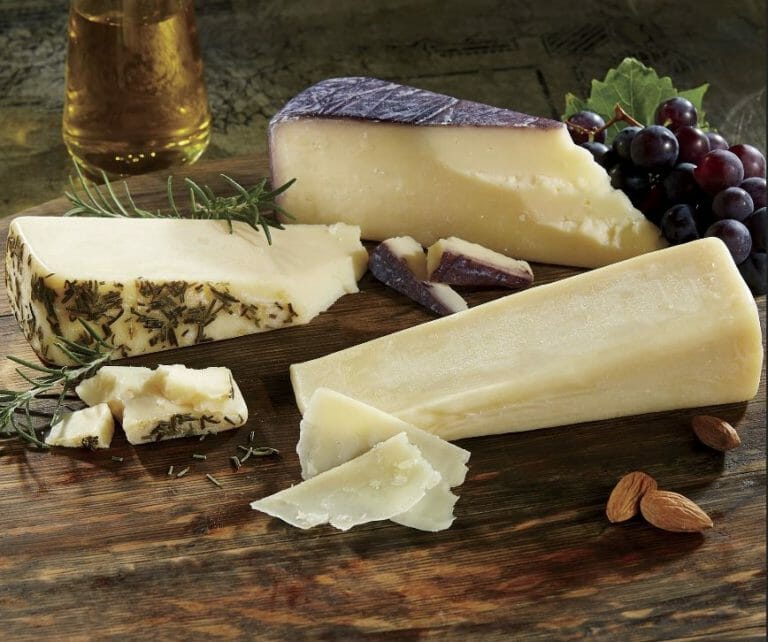
Livin’ La Dolce Vita, Hey!
Founded in 1939 in Plymouth, Wisconsin, Sartori Company is a fourth-generation family-owned and operated company with a team of Master Cheesemakers who have won more than 100 awards at some of the most prestigious competitions around the world. As with most companies of their nature, they started with humble beginnings…
After spending his childhood in Valdastico, a small town in Italy’s Veneto region with the breathtaking Dolomites as a backdrop, Paolo Sartori boarded the steamship Finlandia in search of la dolce vita (“the sweet life”) in America. Along the way, he met an Italian count, who invited him to work at a cheese company. Sartori learned the cheesemaking business inside and out, and in 1939 he and his friend Louie Rossini pooled their life savings and founded the S&R Cheese Company.
Naturally, being Italians, Sartori and Rossini specialized in making Italian-style cheeses, which set them apart from most other cheesemakers in Wisconsin. But that wasn’t the only way in which the new company was innovative. In 1942, Paolo Sartori received his first U.S. patent for his “Cheese Curd Machine,” and he received a second patent in 1946 for his “Curd Mixing and Kneading Machine.”
All this innovation helped create a lot of success for S&R Cheese (which became Sartori Foods in 1996) and anyone associated with them. Paolo’s son, Joe Sartori, co-founded Sargento Cheese with his next-door neighbor, Leonard Gentine, in 1953. (Joe later sold his interest.) In 1957, Paolo gave back to his roots by donating money for a home for the elderly back in Valdastico, Italy. This began a family tradition of giving back to the community, as Sartori has a long history of generosity to charitable foundations, especially in Wisconsin.
Of course, in the end, it’s all about the cheese…and they’ve obviously been doing that right. In 1970, Sartori became the first U.S. exporter of cheese to Japan and Italy. (Yes, Italy.) Selling cheese to Japan is one thing, but selling cheese to the Italians is like selling beer to the Germans or chocolate to the Swiss. The quality had better be impeccable…and cheese of this quality can only come from superior milk.
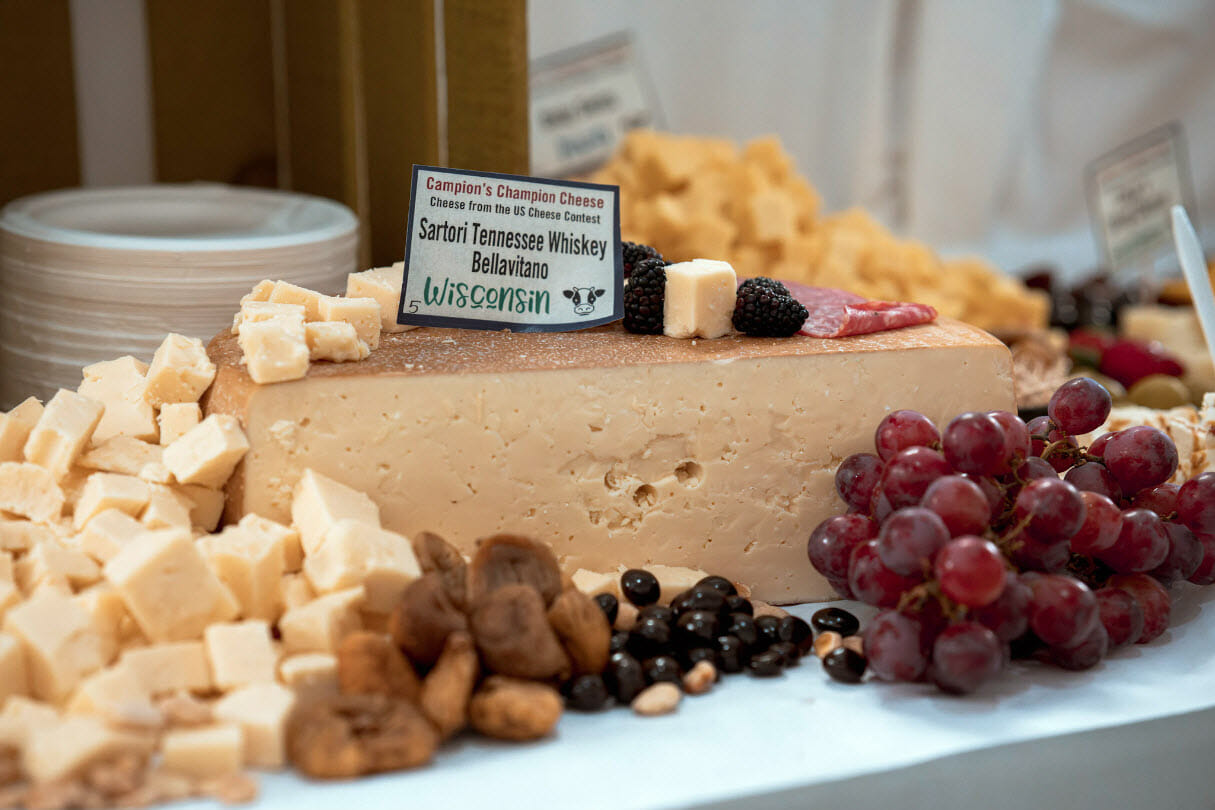
The “Farm-to-Fork” Philosophy
Much of Sartori’s award-winning cheese is made in the small town of Antigo, in an area of northern Wisconsin known as the Antigo Flats. The soil, climate and rainfall converge to create the ideal terroir for raising dairy cows; the local farmers grow high-quality forages which the cows turn into premium-grade milk high in protein, butterfat and other solids. This makes for a very distinctive cheese.
Sartori’s “patron farms” are typically smaller, family-owned farms with an average herd size of 75 cows. The cheesemakers have a special relationship with their family farmers, many of whom have supplied them with milk for several generations. They know the dairy herds and what they eat, and are willing to pay more for their high-quality, rBST-free milk. And because these local farms are located within a 50-mile radius of the Sartori plant, their milk is usually turned into cheese within hours.
All in all, it’s a recipe for award-winning cheese…and Sartori has won many of them.
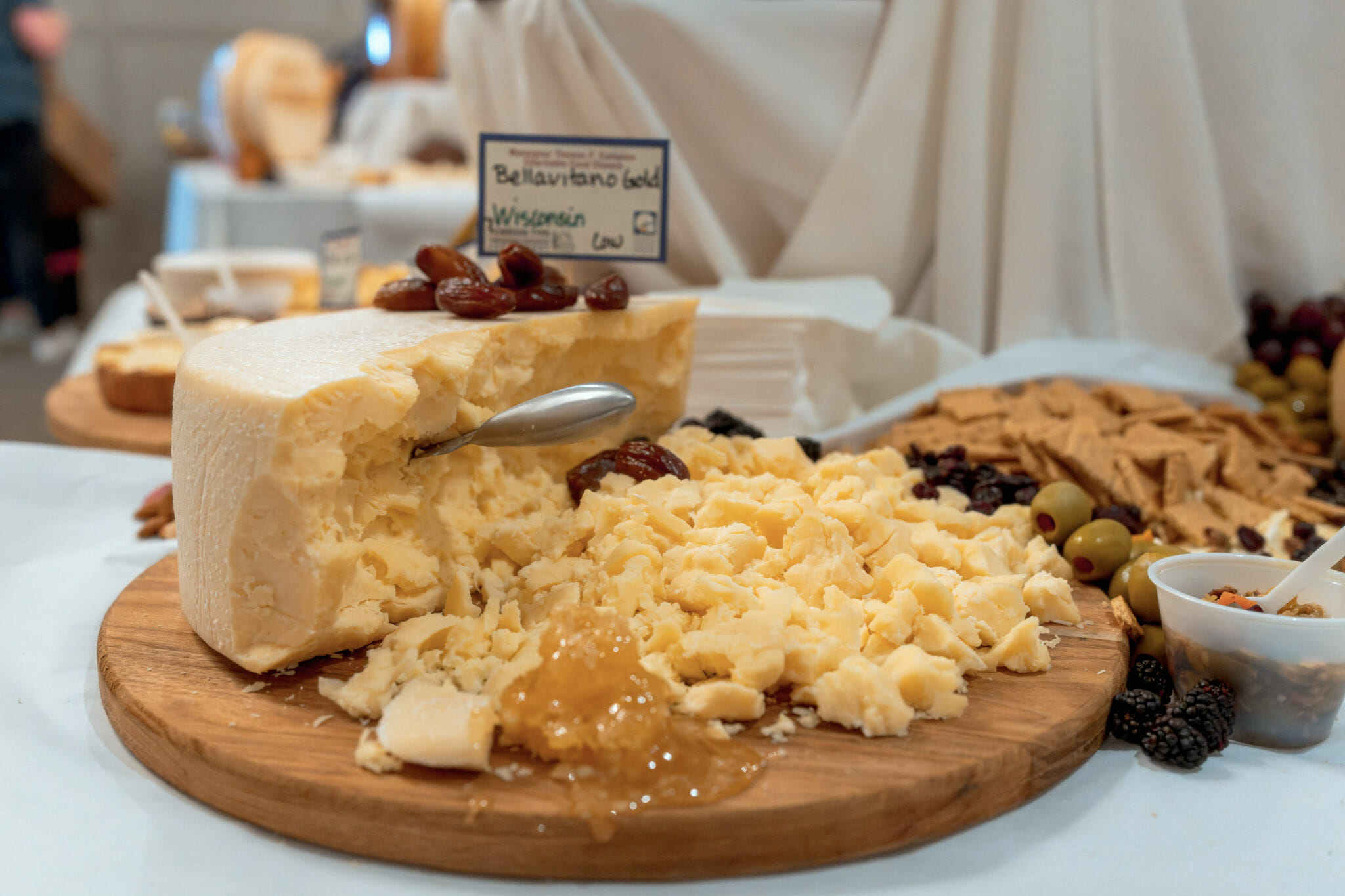
Best-in-Class Parmesan & Asiago Cheese
There are only 58 Master Cheesemakers in Wisconsin; Sartori has four of them. And these artisans have combined to win the company some of the most prestigious awards not only in the U.S., but in the world.
Sartori’s SarVecchio® is the most decorated Parmesan in America, winning First Place (Best of Class) in the World Championship Cheese Contest (held every other year) in 2014, 2012 and 2010.
In the same World Championship Cheese Contest, Sartori’s Extra-Aged Asiago won First Place (Best of Class) in 2014 and 2012, and it took First Place (Best of Class) in the U.S. Championship Cheese Contest (held in the odd years) in 2013.
Sartori’s original BellaVitano®, based on Italian farmhouse cheeses, has also won numerous awards, including Grand Champion in the 2017 U.S. Championship Cheese Contest for Black Pepper BellaVitano®.
These are just the beginning; Sartori’s Italian-inspired cheeses have won more than 200 awards, as well as many more hearts and honors along the way. You owe it to yourself to try some of Wisconsin’s finest.
How Parmesan Cheese is Made
Parmesan cheese, also known as Parmigiano-Reggiano, is a hard, granular cheese from Italy. The process of making Parmesan cheese begins with collecting high-quality cow’s milk and separating the cream from the skimmed milk. The milk blend is heated and curdled using natural whey starter and calf rennet. The curds are cut, cooked, and placed into molds lined with cheesecloth. They are then pressed, immersed in brine, and aged for at least 12 months. Quality inspectors evaluate each wheel before branding it with the Parmigiano-Reggiano stamp, ensuring its authenticity.
Parmesan cheese is made by curdling a blend of milk, cutting and cooking the curds, molding them into specific shapes, pressing and brining the cheese, and finally aging it for an extended period. The result is a hard, flavorful cheese that is widely appreciated for its nutty taste and granular texture.


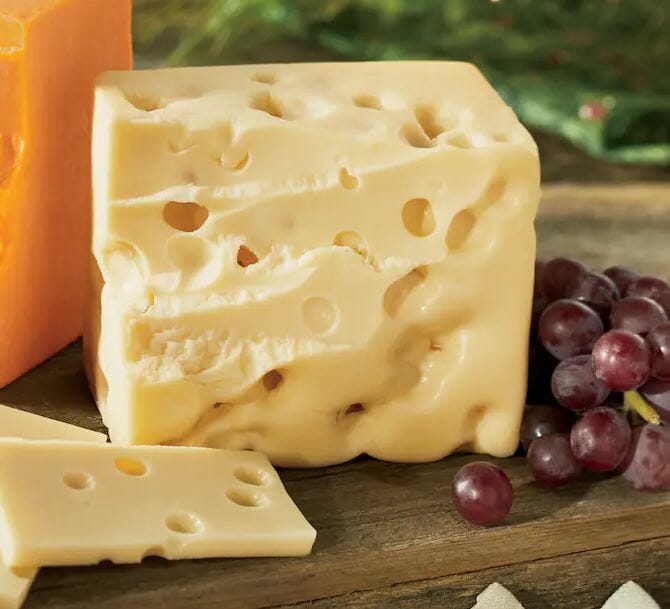
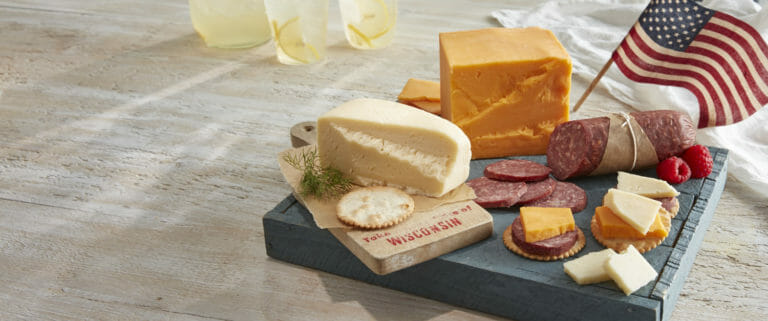
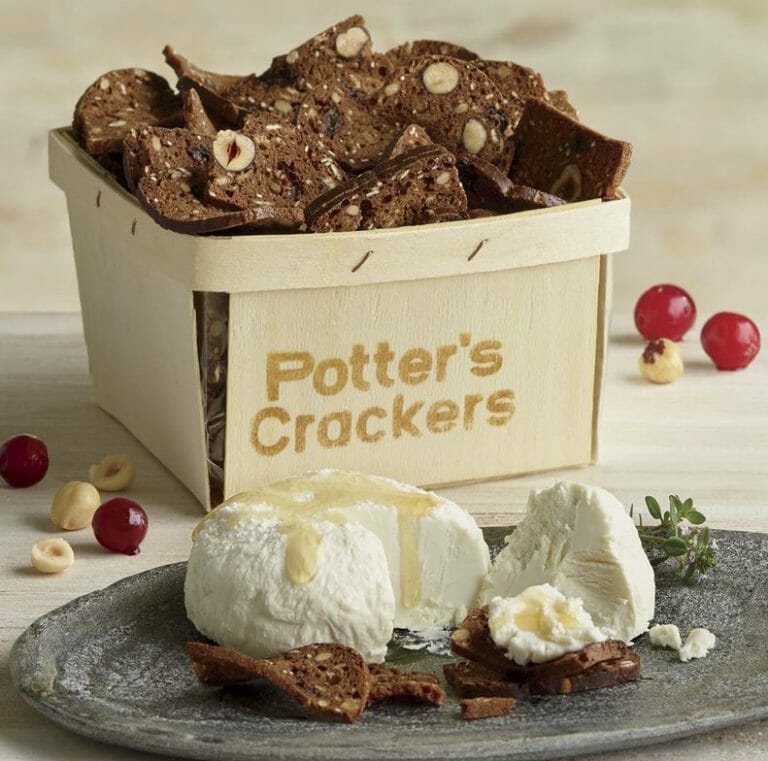
Comments (2)
Felicia
I grew up in Milwaukee and we tried all kinds of cheeses growing up including Limburger! One of my favorites was Caraway Cheese. I live in Utah now, but I can’t seem to find it anywhere. I thought The Wisconsin Cheeseman used to sell it or maybe Swiss Colony? Does anyone make it anymore?
severson
We don’t currently sell a caraway-flavored cheese, nor does Swiss Colony. Sorry we can’t help you there!